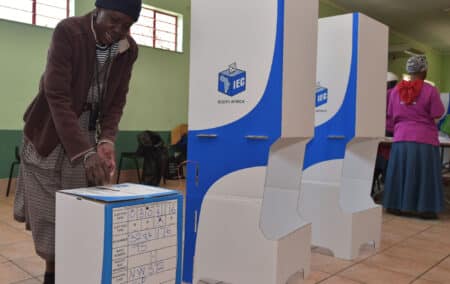Disinformation poses a serious threat to the upcoming South African election as it could manipulate public opinion and even influence the 29 May outcome, according to Zubeida Dawood, CSIR research group leader in cybersecurity.
At a CSIR media briefing on combating fake news last week, Dawood listed the ‘five Vs’ influencing the degree to which data can be trusted: volume (of sources on social media), variety, velocity (speed at which it is generated), value, and veracity.
She said these are key to determining whether news is fake, given the rapid spread of disinformation on social media. The CSIR is in the final stages of developing a ‘human-centric framework’ to detect fake election news, which is nearly complete. The framework will likely be available for public use ‘in a month or two’.
Once the work is published, the CSIR will work on creating it for public consumption, she said.
‘South African elections rely heavily on digital infrastructure, so [the CSIR’s] Mzansi Advanced Cybersecurity Learning Factory will empower [Electoral Commission of South Africa] workers and officials by equipping them with training on how they can prevent phishing attacks and malware infections that might manipulate the election data’, according to Dawood.
She pointed out that generative artificial intelligence can be used for good or nefarious ends. AI can be used to hoodwink potential voters – for example, by cloning the voices of politicians and celebrities. As much as AI can be used to create fake news, Dawood said, it can also be used to debunk it by using automated fact-checking tools.

